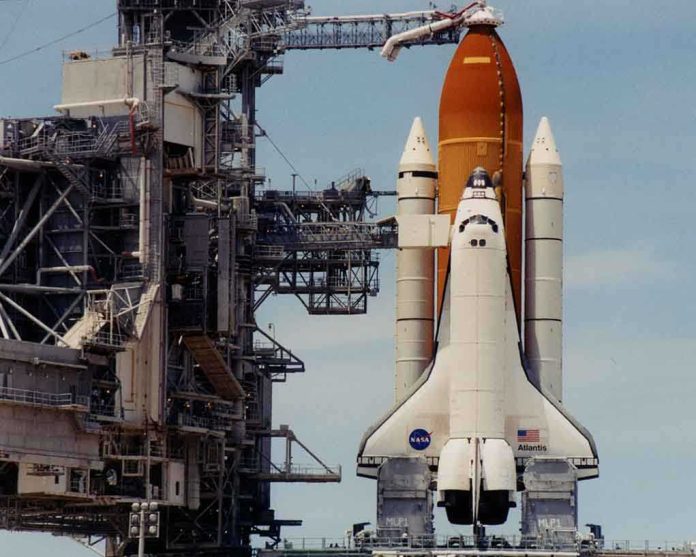
NASA’s historic retreat from climate science signals a major victory for those demanding the agency return to its original mission—while critics warn over 50 Earth observation projects now hang in the balance.
Story Snapshot
- NASA’s new Trump-era leadership confirms a 47% cut to Earth science, redirecting focus to Moon and Mars exploration efforts.
- Over 50 climate monitoring missions face cancellation, alarming scientists and public health officials who rely on this critical data.
- The move reflects a broader rollback of federal climate initiatives, with Congress and advocacy groups gearing up for a budget showdown.
- Supporters hail the decision as a return to NASA’s core purpose, while opponents warn of lost U.S. leadership in global climate tracking.
Trump Administration Orders NASA Back to Its Space Roots
In August 2025, the Trump administration released its FY 2026 budget, proposing an unprecedented 47% reduction in NASA’s Earth science funding. Acting NASA administrator Sean Duffy publicly confirmed the agency will “move aside” from climate science, shifting its resources to renewed missions aimed at returning Americans to the Moon and establishing a long-term presence on Mars. This dramatic realignment marks a clear departure from the Biden administration’s climate-focused approach and fulfills longstanding conservative calls for NASA to abandon what many see as leftist climate activism in favor of advancing American space exploration leadership.
NASA’s Earth Science Division, a world leader in climate monitoring since the 1970s, now faces the loss of more than 50 satellite and observation missions. These projects have long provided critical data for researchers tracking weather, environmental hazards, and climate trends. The Heartland Institute and other conservative think tanks have argued that NASA should concentrate on its original mandate: space exploration, technological innovation, and American exceptionalism in science. For many conservatives, this pivot corrects years of mission drift and bureaucratic bloat, restoring priorities consistent with the agency’s founding vision and the nation’s strategic interests.
Congress and Public Health Experts Sound Alarms Over Data Gaps
The sweeping cuts have triggered a wave of concern among scientists, public health authorities, and bipartisan members of Congress. The Senate Appropriations Committee quickly signaled its intent to challenge the administration’s proposal and restore at least a portion of the threatened science funding. Experts warn that losing NASA’s Earth observation capabilities could undermine national preparedness for natural disasters, hinder disease tracking, and disrupt critical weather forecasting services. Public health officials emphasize that communities vulnerable to environmental hazards and climate-driven events may be left with dangerous information gaps, potentially increasing risks for millions of Americans.
Despite these warnings, the Trump administration’s allies argue that federal climate research has become an expensive, politicized distraction. They insist that the private sector and other agencies, such as NOAA and USGS, can fill any remaining gaps in environmental monitoring without further bloating NASA’s budget or mission. However, many in the scientific community counter that these agencies lack the capacity and resources to fully replace NASA’s unique contributions, potentially weakening the United States’ role in international climate science collaborations and disaster response efforts.
Political Showdown Looms as NASA’s Mission Is Redefined
The battle over NASA’s future now moves to Congress, where appropriators must decide whether to accept or reject the administration’s vision. The White House holds the power to propose and direct policy, but Congress ultimately controls the purse strings, setting up a contentious debate over funding priorities and national goals. While supporters of the cuts see a much-needed return to constitutional government and fiscal restraint, opponents warn of the long-term consequences for science, public safety, and American leadership abroad.
NASA Shifts From Climate Sciences to Space Exploration https://t.co/GvKjD63pK6
— Lean Right News (@LeanRightGnus) August 20, 2025
This high-stakes policy shift exemplifies the broader ideological divide in Washington: between those who prioritize individual liberty, limited government, and traditional American values, and those who favor expansive federal action on climate and environmental issues. As the 2026 budget heads for a likely showdown, the fate of NASA’s Earth science missions—and the nation’s approach to climate and space policy—hangs in the balance.
Sources:
NASA’s Budget Cuts Threaten Public Health and Climate Research — Undark
NASA Prepares to Enact White House Budget Cuts, Changes — Aviation Week







